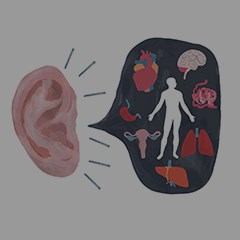Many people believe that setting challenging fitness goals – running a specific distance or lifting a certain weight – can be the secret to exercise success. But is diving into a new fitness regime with the aim of mastering specific workout challenges really the recipe for long-term results?
Not if the research is to be believed. In fact, some studies show this kind of goal setting can deliver nothing but disappointment.
One large review of goal setting research found that, in terms of increasing physical activity, specific goals were no more effective than telling people to simply be more active.
One explanation for this, according to the British Journal of Sports Medicine, could be that people are put off by specific goals that seem unrealistic. Added to that, feeling like a failure is clearly demotivating. The net result is thinking, “I’m never going to meet that” and just flopping back down on the couch.
A better approach, it has been suggested, is to replace specific goals with the more general aim of seeing how active you can be.
This doesn’t mean scrapping a structured approach to fitness altogether. Les Mills has created a beginners plan for fitness based on an extensive study into how new exercisers feel as they embark on a new workout regime. The guiding principles are to start slowly, build gradually, and mix things up.
If you’re following this plan it’s a good idea to set some goals, but make sure they are attainable. A goal of 150 minutes of physical activity a week is a good start – as 150 minutes of exercise a week is what you need to start enjoying the health benefits of exercise. And remember, exercise comes in all sorts of guises; group fitness workouts, walking, bike riding or even just choosing to take the stairs instead of the elevator.
Success will come if you keep your goals realistic and make sure you’re not too hard on yourself. As you reach each of your goals you can re-evaluate how much time you spend exercising and what you are trying to achieve.
If you want more tried, tested and true news from the leading edge of health and fitness sign up to get Fit Planet insights and advice straight to your inbox.







